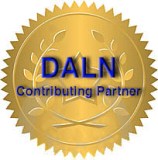Mission & Learning Outcomes
Since its founding in 1980, the Rhetoric & Writing Studies Doctoral Program has been committed to preparing its graduates for faculty careers in rhetoric and composition. The Program utilizes the range of approaches--rhetorical, cultural, empirical, and technological--that characterize the discipline in the twenty-first century.
Mission
We believe rhetoric and writing change worlds. We study rhetoric and writing. Employing different research methods and methodologies, we learn about the role and impact of rhetoric and writing in various contexts, communities, and cultures, and we share our research in a variety of forms to change worlds. We teach rhetoric and writing. Drawing on what our field has learned about writing, we design innovative curricula and classroom practices to teach students how to use writing to change their worlds. Finally, we make things with rhetoric and writing. Our research and teaching improves how we ourselves employ rhetoric and writing, and we make rhetoric and writing projects that change worlds through community engagement. In short, BGSU’s Doctoral Program in Rhetoric and Writing Studies prepares graduate students to be leaders advocating for the power of rhetoric and writing to change worlds and impact public good as researchers, teachers, program directors, and writers.
Core Experiences
What is Rhetoric and Writing Studies as a discipline, and how do we participate in how it creates knowledge about rhetoric and writing? Doctoral students develop answers to these overall questions through the following core experiences:
1. Administration: How can we design writing programs, writing across the curriculum initiatives, and writing centers to support writing instruction for different populations of writers? How do we talk to and teach other writing teachers and stakeholders about best practices?
2. Community Engagement: How do we use rhetoric and writing to engage and change communities outside our classroom for public good? What are the possibilities of interdisciplinary collaboration for the study of rhetoric and writing?
3. Diversity: How do various communities, cultures, and identities make rhetoric and writing? How do we make rhetoric and writing accessible and inclusive?
4. History: What histories impact contemporary perspectives of rhetoric and writing? What do histories reveal about contemporary values and needs? How do we make histories?
5. Mentoring: How can faculty and students build relationships that connect emerging scholars with disciplinary networks and practices to support students’ learning and professional development?
6. Research Methods: What methods and methodologies allow us to learn about rhetoric and writing? How do we ethically represent those we study and responsibly advance our understanding of rhetoric and writing?
7. Teaching: What has research taught us about best practices for teaching rhetoric and writing to different populations of writers, in college writing and beyond? How can we adapt these practices to help students transfer rhetoric and writing knowledge across multiple contexts?
8. Technology: How have digital tools impacted rhetoric and writing? How do we use these digital tools to make rhetoric and writing?
9. Theory: What theories help us understand how rhetoric and writing function? How might our lived experience impact those theories?
Learning Outcomes
The Rhetoric and Writing Studies doctoral program at BGSU produces future faculty members who:
- Appraise methodological, theoretical, and pedagogical approaches for engaging as scholars, teachers, and leaders who are responsive to the situated nature of rhetoric and to what students, campuses, cultures and society want from writing today. This outcome is assessed through successful defense of the Preliminary Exams (General Exam and Specialized Portfolio).
- Justify interventions in ongoing disciplinary conversations and practices in rhetoric and writing studies through their own research, theory building, and pedagogies. This outcome is assessed through successful defense of the Prospectus.
- Develop impactful rhetoric and writing scholarship rooted in the evolving literacies, technologies, and purposes of learners shaping higher education today. This outcome is assessed through successful defense of the Dissertation.
Funding Opportunities
Ph.D.-level assistantships carry a stipend of $15,500.00 (in 2020-2021), accompanied by a waiver of all instructional and out-of-state fees. Most assistantship assignments have individuals teach first-year writing, but other opportunities are available on a limited basis. Additionally, students in their final year of the program are encouraged to apply for a Research Assistantship to support research work.
Research Facilities
Library Resources- The Jerome Library houses a collection of more than four million items, including books, journals, periodicals, microforms, government documents, and other materials. It also boasts a wide range of online databases, as well as an interlibrary loan service, OhioLink, with all public university services in Ohio. The library houses a nationally acclaimed popular culture archive, a large collection of women's archives from the 19th and early 20th centuries, and the Educational Memorabilia Center, an archive of literacy artifacts from 19th century schoolhouses. Library services for graduate students include individualized research strategy conferences.
Jerome Library Center for Archival Collections Ray & Pat Browne Library for Popular Culture
Computer Facilities- The University has over a dozen computer labs featuring PC (Dell) and MAC environments, including a Faculty-Graduate Student Workroom dedicated to supporting research projects. The Collab Lab provides support and technology tools to graduate and undergraduate students for all teaching and research projects. Like most buildings on campus, the English Department building has wireless networking, and also a graduate student computer/printing room. Graduate students have the opportunity to teach in technology rich classrooms throughout the campus.
Department of English
Dr. Lee Nickoson, Program Director
Telephone: 419-372-7556
Email: leenick@bgsu.edu
Updated: 08/26/2025 03:39PM

